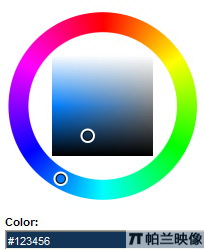|
|
復(fù)制代碼 代碼如下:
<html>
<head>
<title>Example</title>
</head>
<body>
<p><strong>Note:</strong> The latest versions of Firefox seem to have fixed the string concatenation problem. If you are using Firefox 1.0 or later, the string buffer may actually take longer than normal string concatenation.</p>
<script type="text/Javascript">
function StringBuffer() {
this.__strings__ = new Array;
}
StringBuffer.prototype.append = function (str) {
this.__strings__.push(str);
};
StringBuffer.prototype.toString = function () {
return this.__strings__.join("");
};
var d1 = new Date();
var str = "";
for (var i=0; i < 10000; i++) {
str += "text";
}
var d2 = new Date();
document.write("Concatenation with plus: " + (d2.getTime() - d1.getTime()) + " milliseconds");
var buffer = new StringBuffer();
d1 = new Date();
for (var i=0; i < 10000; i++) {
buffer.append("text");
}
var result = buffer.toString();
d2 = new Date();
document.write("<br />Concatenation with StringBuffer: " + (d2.getTime() - d1.getTime()) + " milliseconds");
</script>
</body>
</html>
在 Firefox/3.0.3中執(zhí)行的結(jié)果如下:
Concatenation with plus: 5 milliseconds
Concatenation with StringBuffer: 10 milliseconds
在IE6中執(zhí)行結(jié)果如下:
Concatenation with plus: 234 milliseconds
Concatenation with StringBuffer: 62 milliseconds
1.兩種方式性能差別很大
2.看來IE6字符串連接處理能力比FF3很差呀
3.IE6和FF3兩種方式結(jié)果相反,看來以后寫連接優(yōu)化還有注意瀏覽器呀
JavaScript技術(shù):javascript 字符串連接的性能問題(多瀏覽器),轉(zhuǎn)載需保留來源!
鄭重聲明:本文版權(quán)歸原作者所有,轉(zhuǎn)載文章僅為傳播更多信息之目的,如作者信息標(biāo)記有誤,請(qǐng)第一時(shí)間聯(lián)系我們修改或刪除,多謝。



